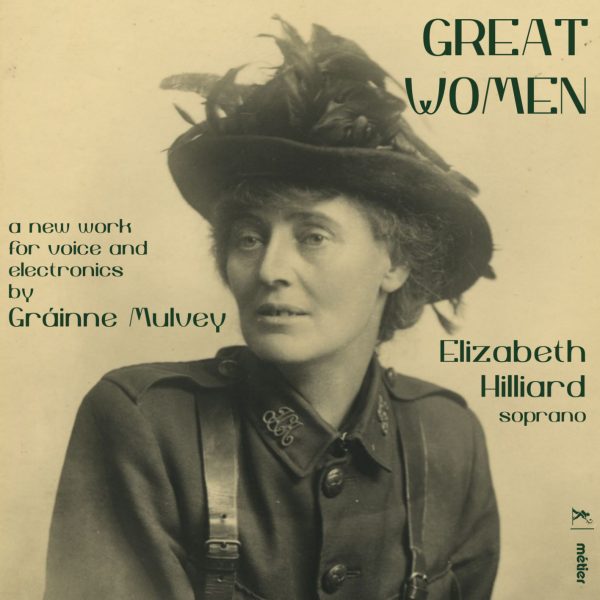Fanfare
I enjoyed Graínne Mulvey’s Métier releases of Aeolus (which shared disc space with Christopher Fox’s Untouch, reviewed for Fanfare by Marc Medwin in 42:1) and the Black Box disc shared with Deirdre Gribbin that included Mulvey’s Sextet Uno and Rational Option Insanity (Fanfare 24:3, reviewed by Peter Burwasser), and, indeed, the disc Sea to the West, which included music by Fox again, plus Linda Buckley, Bremner, and Mulvey’s Phronology Garden and Eternity is Now (Fanfare 40:3).
Commissioned by the Great Music in Irish Houses Festival to mark its 50th anniversary in I 20, Great Women tells of the ladies who have carved out the social and political landscape as they strove for equality and liberation. To reflect this, Mulvey sets words by such as the Countess Markiewicz and Rosie Hackett, plus more contemporary personages such as Ireland’s former presidents Mary Robinson and Mary McAleese (Mulvey quotes from their inaugural speeches). The recorded quotations are recorded by the soprano who also sings live here (and for whom the work was written), the astonishing Elizabeth Hilliard.
The sound vista created by Mulvey is vast. Most of the electronic sounds derive from those recordings of speeches, enhanced by some field recordings. Usefully, full texts are included; the work is comprehensible and has a real sense of narration, which sometimes dissolves by self-replication into more amorphous sound fields. There is more than a hint of a Joycean process at work here. The sheer washes of sound Mulvey creates make an enormous effect purely on sonic grounds, especially when Hilliard’s silvery soprano floats ethereally above them. The ability to create ‘crowds” of sound from one voice is also effectively utilized.
Lest terms like electronic music and “sound vista” scare anyone off, I should point out there is beauty to Mulvey’s piece. Few words can do justice to Elizabeth Hilliard’s virtuosity here, not its: in terms of the extended vocal techniques demanded of her, but also the purity of line (even when said line is as disjunct as they come). At the risk of sycophantic tautology, this warrants an absolutely wholehearted recommendation without hesitation; a last-minute entrant into the race for my Want List.
@divineartrecordingsgroup
A First Inversion Company
Registered Office:
176-178 Pontefract Road, Cudworth, Barnsley S72 8BE
+44 1226 596703
Fort Worth, TX 76110
+1.682.233.4978












